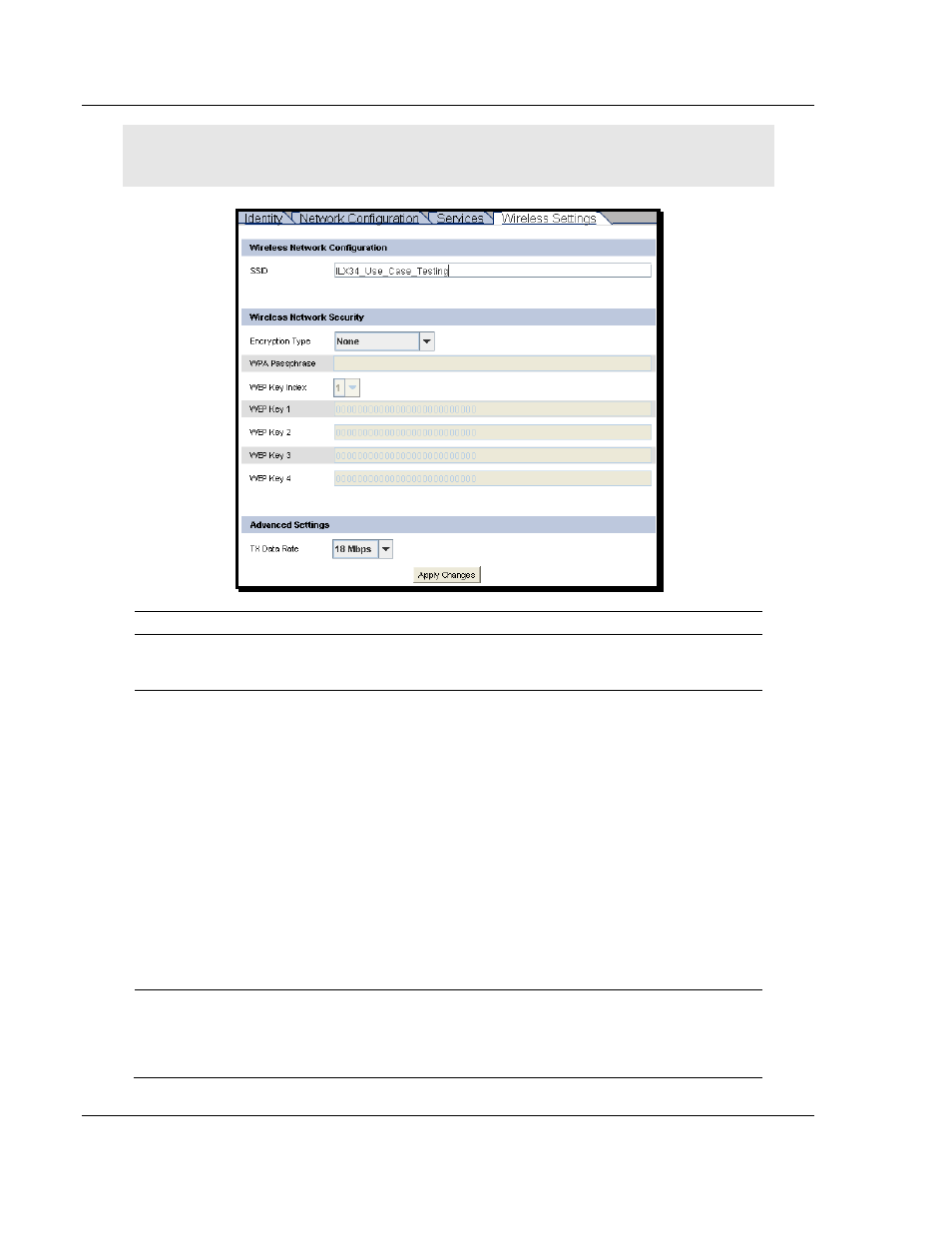ProSoft Technology ILX34-AENWG User Manual
Page 90

Diagnostics and Troubleshooting
ILX34-AENWG ♦ Point I/O Platform
User Manual
Wireless POINT I/O Adapter
Page 90 of 177
ProSoft Technology, Inc.
August 16, 2013
Important: The values on this page are in non-volatile memory. Changes to these parameters do
not take effect until you reset or cycle power to the ILX34-AENWG adapter.
Field
Description
SSID
Assign a network name (SSID) of up to 32 characters. The radio uses this
name in all network references. All radios in a network must have the same
SSID. SSID names are case-sensitive.
Encryption Type
Choose the method by which the adapter will apply encryption security:
NONE (not recommended)
WEP128 - Legacy security setting using a 128-bit key and WEP
encryption.
WPA2/AES (Preferred) - Security setting using WPA (pre-shared key)
authentication and AES encryption.
The preferred encryption type is AES (Advanced Encryption Standard). You
should only select WEP (wired equivalency protocol) for use with an older
client radio that only has WEP encryption.
WEP is the original security protocol used by 802.11 networks, but AES offers
better protection against attacks, for several reasons: AES uses an advanced
encryption algorithm that is not susceptible to the same weaknesses as WEP,
it performs dynamic key management by changing the session keys
frequently, and it performs message integrity checks to prevent forgery and
replay.
You can also select WEP 128, or None (no encryption) as the encryption type,
but none of these settings are recommended.
WPA Passphrase
To use WPA2/AES encryption on packets sent between the radios, enter a
WPA2/AES pass phrase of between eight and 63 normal keyboard characters.
This phrase automatically generates an encryption key of 128 hexadecimal
characters. This field is only available if you select WPA2/AES as the
encryption type.
